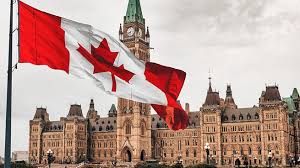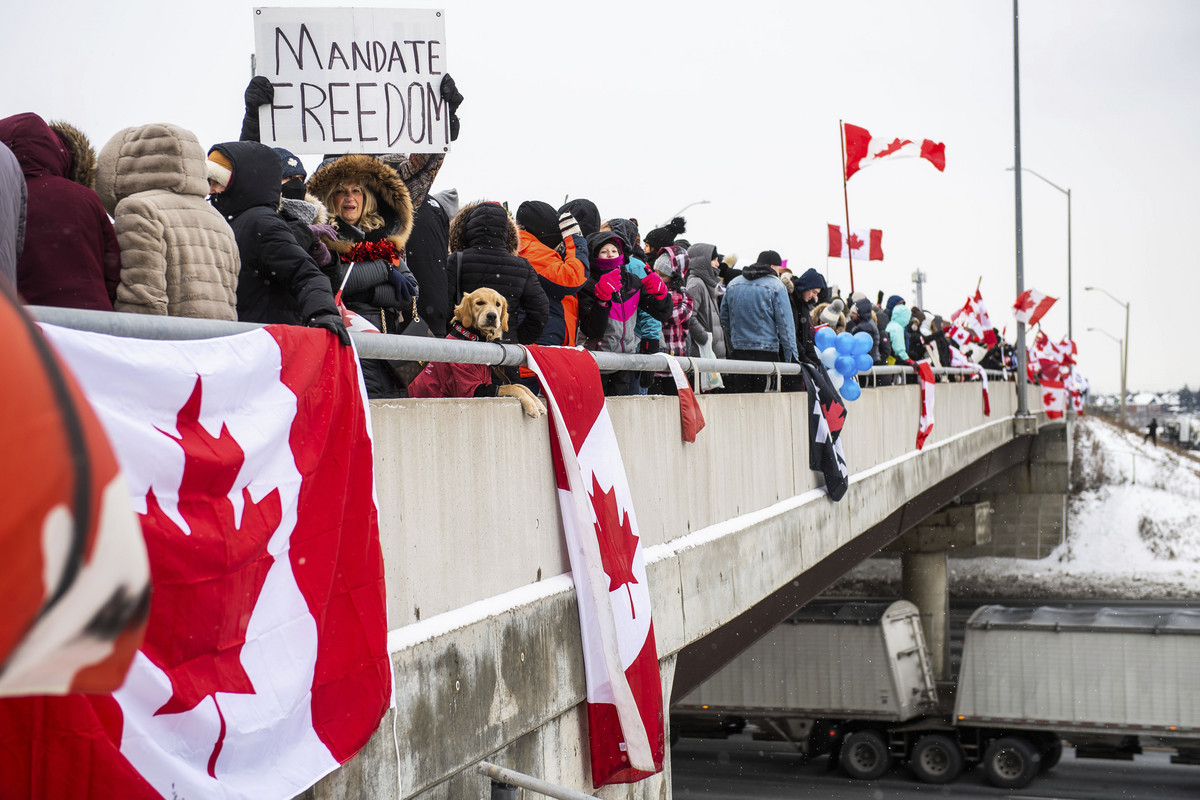Isn’t this just a riveting game of cancelation bingo? Quebec’s government, apparently afraid that peaceful prayer meetings might trigger a province-wide existential crisis, decided to shut down an event quicker than you can say “freedom of expression.” Hats off to them for being the ultimate defenders of principles… as long as those principles align with their morning coffee preferences. But fear not, for in the grand tradition of “no support” and “fundamental principles,” we’ve witnessed a high-stakes showdown where faith meets bureaucracy. Who needs a rally anyway, when you can have a constitutional conundrum served with a side of “Oh, Quebec, you never cease to amaze us!”
In a bold move, a Christian organization is taking legal action against the Quebec government, asserting that their event cancellation was based on presumptions of pro-life messaging. The Justice Centre for Constitutional Freedoms (JCCF) has stepped up to represent Harvest Ministries International, as they contest the sudden termination of their contract for the Faith, Fire, Freedom Rally. This anticipated event, originally slated to occur in Quebec City from June 23 to July 2, 2023, was abruptly called off by the government, leading to a dispute over constitutional rights and freedoms.
Unveiling the Lawsuit: Harvest Ministries International vs. Quebec Government
Harvest Ministries International, emboldened by the JCCF, has initiated legal proceedings against the Quebec government, the Ministry of Tourism, and the Quebec City Convention Centre. The heart of the matter revolves around the government’s decision to revoke the contract for the Faith, Fire, Freedom Rally, citing concerns of pro-life sentiment.
Legal Grounds: Charter Freedoms and Religious Discrimination
The legal battle hinges on the assertion that the Quebec government’s actions infringed upon Charter freedoms. Harvest Ministries International is seeking damages for the abrupt termination of their rental agreement without prior notice, and for what they claim is an unconstitutional and unwarranted violation of their freedom of expression and religious beliefs. The legal group’s press release, dated August 9, underscores this perspective.
Government’s Justification and Rebuttal
Caroline Proulx, Quebec’s Minister of Tourism, played a pivotal role in the event’s cancellation. She deemed the rally as being “against the fundamental principles of Quebec,” leading to the order to nullify the rental agreement. The Minister for the Status of Women echoed this sentiment, asserting the government’s resolute pro-choice stance. Premier François Legault chimed in, vowing not to allow anti-abortion groups to hold prominent gatherings in public spaces.
Rally’s Essence and Misconceptions
The JCCF’s complaint emphasizes that the Faith, Fire, Freedom Rally was intended to center around themes of faith, reconciliation, and unity among the founding communities of the Canadian Federation. Contrary to misconceptions, the event was not an “anti-abortion” platform, as affirmed by the JCCF. Rather, it aimed to foster a sense of community through large-scale prayer meetings, musical performances, and artistic presentations.
Avenues for Alternative Venue: Hindered by Principles
Amidst the turmoil, the CEO of the venue initially extended a helping hand, offering to assist in finding an alternate location for the rally. However, this offer was subsequently withdrawn, with the Minister of Tourism making it abundantly clear that no support would be provided for relocating the event. This about-face was justified by the fundamental principles of Quebec.
The core of the Dispute: Protecting Fundamental Rights
At its core, the legal battle is not about the specific pro-life views of Harvest Ministries International. Rather, it revolves around the fundamental rights of the organization, its members, and its supporters. The essence of these rights lies in the ability to freely practice their faith, engage in political expression, and peacefully assemble without state-induced hindrances.
Futile Search for Alternatives
In the aftermath of the event’s cancellation, the Christian group diligently explored alternative venues to host the rally, only to encounter continuous rejections. A total of 43 establishments were approached, and all declined to accommodate the event. The fear of controversy stirred by the government’s actions loomed large over these establishments’ decisions.
Authoritative Actions and Their Impact
The sequence of events that unfolded showcased the government’s authoritative approach, with key figures publicly targeting Harvest Ministries International. The JCCF contends that this display of authority, coupled with orders issued under public scrutiny, reflected a clear instance of popular vindictiveness against the organization. Allegedly, this was driven by perceived inconsistencies with the “fundamental principles of Quebec.”
Seeking Justice: Legal Aims and Declarations
Harvest Ministries International’s legal pursuit seeks a total of $25,000 in damages, citing violations of freedom of religion, expression, opinion, and peaceful assembly. The organization also aims for a judicial declaration of unjustified interference with its rights. In essence, this legal battle transcends a mere clash of opinions on abortion, evolving into a high-stakes struggle for safeguarding core democratic freedoms.
In a society where constitutional rights are paramount, the outcome of this legal confrontation bears significant implications for the broader landscape of religious expression, political discourse, and the right to assemble freely. As the legal proceedings unfold, the spotlight remains on the tension between governmental principles and individual liberties, casting a critical eye on the balance between state power and the protection of fundamental rights.










